Before writing this blog I thought I would establish accurately the smallest size of hole a mouse can squeeze through and Youtube provided the answer at 15.5mm. If you are interested watch this quite scientific experiment demonstrating this.
I am sure I had heard a mouse could get through a hole as small as a pencil shaft so this being significantly bigger was actually welcome news.
Rodents causing damage to pipe and digital organs
I expect we all realise that rodents cause damage to pipe organs. They chew through the leather of wind reservoirs and trunking. In the picture below they have destroyed much of the felt on a pedal board. And at times they will also attack wiring though this is generally less abundant than in a digital instrument.
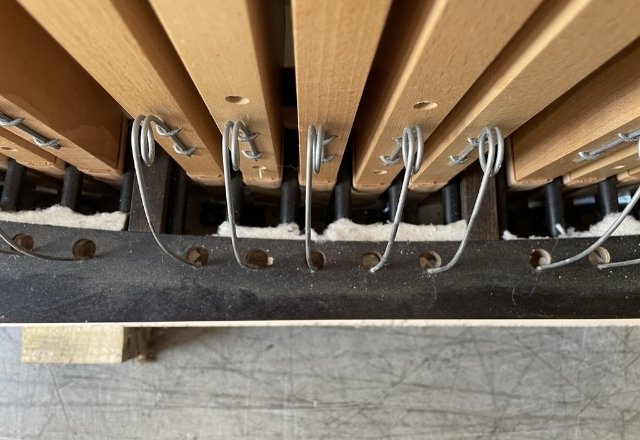
These little pests often attack church organs but home instruments are not always immune to their attention.
Digital organs offer a similarly attractive habitat to these animals. Perhaps due to the more enclosed environment of the digital console it offers a warm refuge in the cold winter months from the harsh outside conditions. It is not surprising therefore that we sometimes see mouse damage in the console and at times this can be significant and expensive to repair.
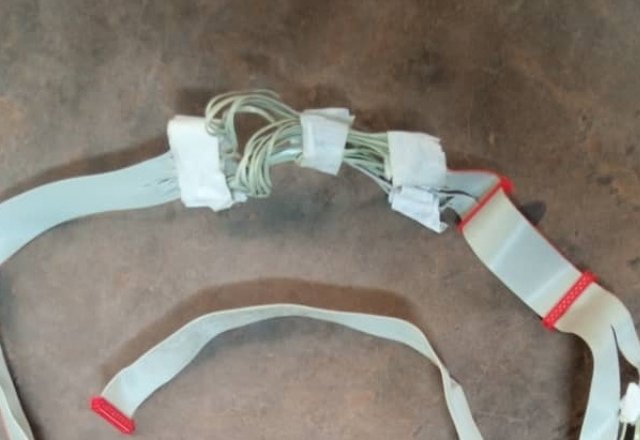
As well as chewing cables as you see in the picture below they all too often urinate on circuit boards shown in the video from a church in Nigeria. Sadly, when this happens no repair is possible and all boards affected must be replaced at significant cost with the instrument totally out of use until the parts are replaced.
How to prevent rodents damaging organs
So far better to prevent the problem in the first place. An easy but not infallible option is to use ultrasonic mouse deterrents such as the one pictured below. Place near the console this will deter all but the most determined rodent from venturing inside the console.
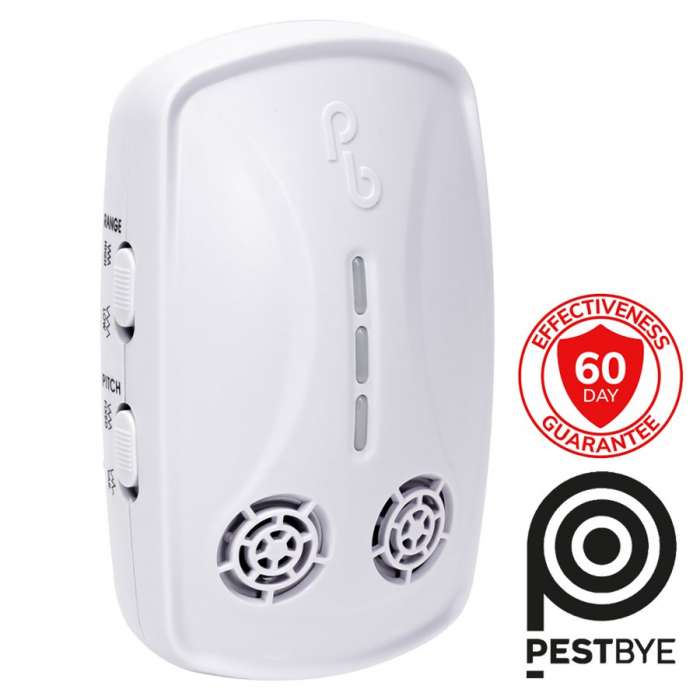
Where we are aware of a high risk environment, its better to be totally sure that the console has been made impregnable to attack. The Chorum 90 pictured below was headed to such a location so we have prepared the instrument accordingly. The expression pedal cavity provides by far the largest opening to the console interior and as you see the rear of that has been covered with a metal mesh. Wires connecting the expression pedals remain vulnerable but those now will be the only cables a mouse can get to.
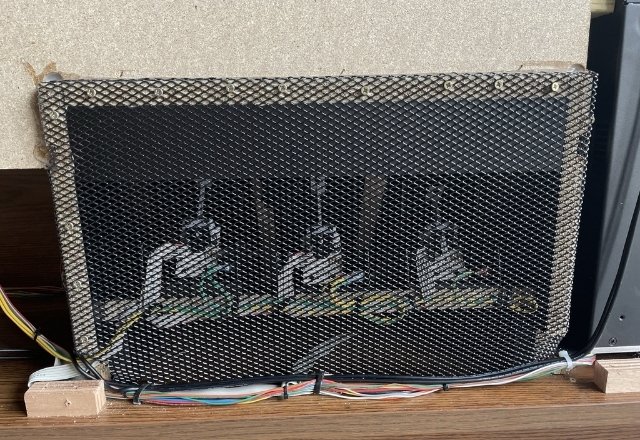
The factory cut cable port has also been closed off by mesh as have the air ventilation holes below the amplifier.
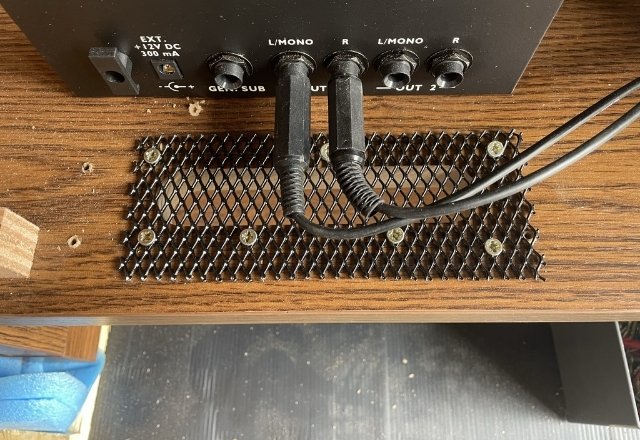
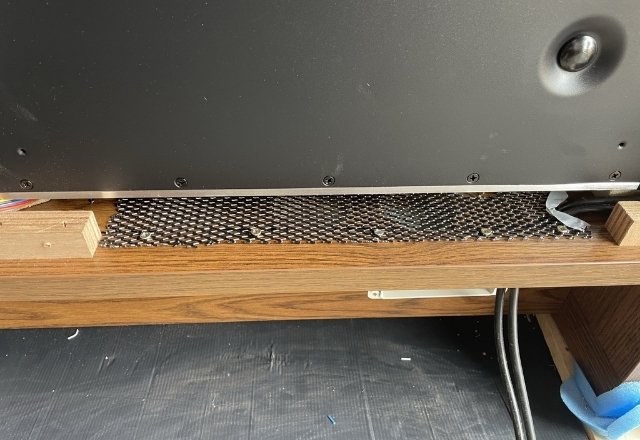
The speaker cables have been taken through to an externally mounted box where speedcon connectors will join the speakers to the organ. The power lead port has also been closed off so no rodent can enter that way.
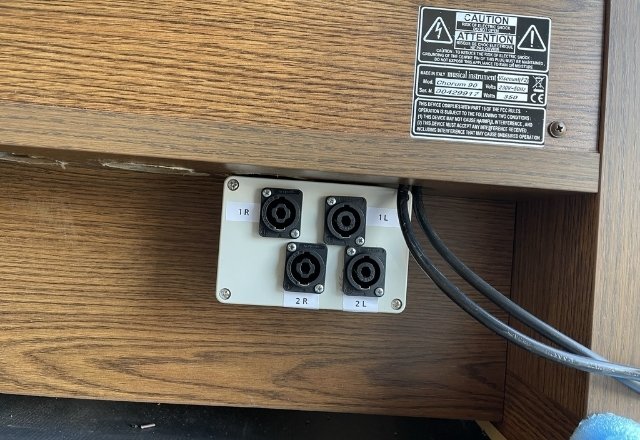
These relatively simple alterations have made the instrument as difficult as is possible for any rodent to attack.
I have had a passion for church organs since the tender age of 12. I own and run Viscount Organs with a close attention to the detail that musicians appreciate; and a clear understanding of the benefits of digital technology and keeping to the traditional and emotional elements of organ playing.
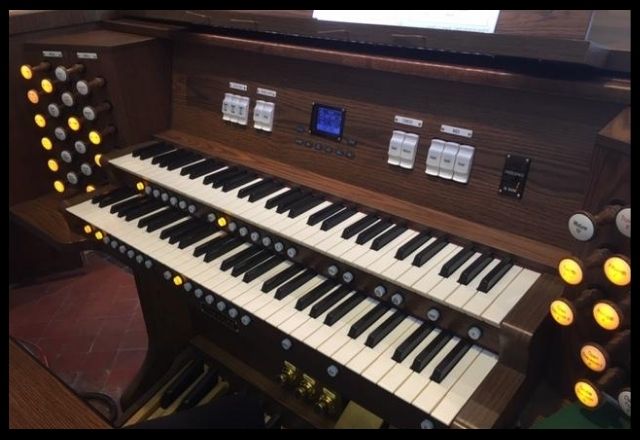



Thank you David – solid advice and a worthwhile warning. We use the ultrasonic devices, so far so good, but I think the screening of holes might be a worthwhile addition discussed routinely with purchasers at the start of the organ’s manufacture. Most churches suffer from the proverbial church mouse – especially rural parishes with low frequency of services and the prospect of rodents seeking shelter after harvest time.
We love our Viscount organ in All Hallows, Hargrave! Cathy Lamb will be playing a recital on the 18th September at 3pm – you would of course be a very welcome guest!
PS Any advice on discouraging bats from roosting above the instrument please?! Far more pesky!
A frequent issue that I found on old analogue organs was chewed electrolytic capacitors on circuit boards. More often than not writing the instrument off. Even if replacement circuit boards could be sourced, the cost made the repair of an older instrument uneconomic.
I’ve often mused on the practice of installing Dampp Chasers, or other heating devices to protect instruments from damp in cold churches. Does this inadvertently provide mice with a nice centrally heated winter home?